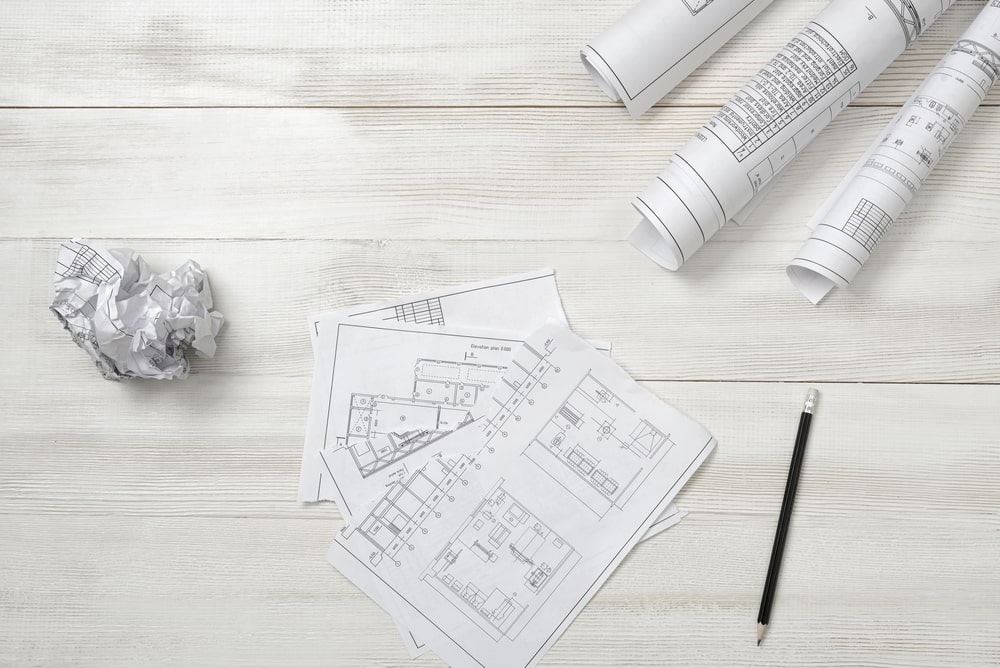
The construction defect attorneys at Bennett Legal Group in Florida can help you prove or defend a claim and advise you on the recommended next steps. If the situation develops, we adopt alternative dispute resolution methods to attempt to resolve disputes out of court.
Whether you are a construction business or professional that has received a Notice of Claim from a building owner or you need to prove a construction defect exists, your next move is important.
With the threat of litigation – and all the expense and delays associated with it – seeking the assistance of legal representation that aims to resolve your dispute as quickly and effectively as possible could save you considerable time, money, and headaches.
What is Considered a Construction Defect in Florida?
Almost any condition that reduces the value of a building, home, condominium or other property can be legally recognized as a defect in design, workmanship, or materials.
Disputes can escalate quickly as the professional integrity of the construction professional may be called into question.
Florida Statute Chapter 558 defines a “construction defect” as follows:
“A deficiency in, or a deficiency arising out of, the design, specifications, surveying, planning, supervision, observation of construction, or construction, repair, alteration, or remodeling of real property resulting from:
- Defective material, products, or components used in the construction or remodeling;
- A violation of the applicable codes in effect at the time of construction or remodeling which gives rise to a cause of action pursuant to s. 553.84,
- A failure of the design of real property to meet the applicable professional standards of care at the time of governmental approval; or,
- A failure to construct or remodel real property in accordance with accepted trade standards for good and workmanlike construction at the time of construction.
What are the most common construction defects in Florida?
We see the same construction defects again and again in the Orlando area and throughout Florida. Heavy rainfall is quite normal for the area. Coupled with substandard workmanship on a building, this is often the trigger for a construction defect claim.
With the sub-tropical climate also bringing high humidity and strong sunshine, buildings need special protections to combat the extreme elements.
Most commonly, the subject of the defect claim is one of the following:
- Water seepage through roofs
- Water entering through windows and sliding glass doors
- Siding, facade and stucco deficiencies leading to leaks
- Foundation slab leaks or cracks
- Faulty drainage
- Improper landscaping and irrigation
- Termite infestation
- Improper materials used
- Structural failure or collapse
- Defective mechanical and plumbing systems
- Faulty electrical wiring
- Inadequate environmental controls
- Improper security measures and devices installed
- Insufficient insulation or poor sound protection
- Inadequate firewall protection
- HVAC problems (poor installation)
- Shower enclosure leaks
- Ponding of water on balconies and decks
Water damage often leads to substantial and expensive damage from mildew and mold. Sink holes and earth settlement can also create problems in the Orlando area and Florida. Examples include:
- Expansive soils
- Underground water or streams
- Sink Holes
- Settlement
- Earth movement
- Improper compaction
- Inadequate grading
- Poor drainage
Filing or defending a construction defect claim in Florida
Depending on your situation, you may need to file a construction defect claim and prove it to win your case. Whether you are filing or defending a construction defect claim, it is important to hire an experienced Florida Construction Lawyer to assist.
In Florida, you generally have four years from the date on which the defect was discovered or should have been discovered to file a claim.
However, no matter when the defect was discovered, the deadline to file a lawsuit for a construction defect
is generally 10 years from the completion of the construction. It is important to discuss these deadlines with an experienced Florida construction attorney.
Before filing an action against a contractor, subcontractor, supplier, or designer for construction defects in Florida, an aggrieved property owner is generally required to serve a Notice of Claim at least 60 days before the suit is filed. This is laid out in Florida Statute Chapter 558.
The party alleged to be responsible for the defective work then has the opportunity to inspect the problem and the “right to cure” or fix the issue.
The responsible party must respond in writing within 45 days and this letter usually includes one of the following:
- An offer to fix the defect at no cost to the owner (by a certain date, with a detailed description of repairs)
- An offer for a financial settlement
- A combination of the above
- A statement disputing the claim, or
- A statement to the effect that any financial payment will be determined by their insurance company within 30 days of notifying the insurer of the claim.
If you receive a settlement offer, you must accept or reject it within 45 days of receiving it.
It is advisable to take legal advice from a construction defect attorney in preparation and pursuit of your claim.
Your lawyer will help you gather evidence to prove your claim and file the lawsuit against the responsible party.
Liability and Construction Defects in Florida
Construction defect cases are complex and involve numerous parties asserting myriad claims and defenses. They are usually based on contracts between a property owner and developer, general contractor, or design professionals as well as the agreements between the general contractors and subcontractors, but are also often premised on negligence and warranty claims directly by the property owner against all involved in the project. In most cases, property owners must give contractors, subcontractors, or other construction professionals written notice 120 days before they file a lawsuit. This time period allows the construction professionals an opportunity to investigate the alleged defects and determine whether to fix the defect, settle, or deny the claims.
Often these cases can expand to 3rd and even 4th party claims, as the liability flows down the chain of contracts. For instance, an owner will sue the general contractor, who in turn will sue subcontractors, who in turn will sue sub-subcontractors or suppliers. These downstream claims generally take the form of indemnification claims or contribution claims.
When addressing liability for a construction defect, usually one or more of the causes of action below are involved.
Breach of Contract
The property owner can sue the developer or the builder based on the theory of breach of a provision in the purchase or sale documentation, or in the escrow instructions. This is usually more involved than just the builder failing to adhere to building plans or specifications.
Negligence
The developer, contractor or subcontractor has the duty to use reasonable care that would normally be shown by business professionals in the industry. The duty of care extends to anyone who could foreseeably be injured by the defect. General contractors and developers are liable for the negligence of their subcontractors.
Strict liability
In some jurisdictions, the general contractor is strictly liable under the concept of implied warranty of habitability. This means, in certain circumstances, the property owner does not have to show that the contractor acted negligently in any way.
Breach of Warranty
Purchase documentation between the developer and property owner contain warranties regarding the condition of the property. Courts have said that sellers and builders of new construction should be held to what is implied within the contract-that the structure was designed and built in a reasonable, professional manner. There may also be warranties created by statutes.
Fraud and Negligent Misrepresentation
If the developer intentionally misrepresented the quality of construction, there may be a cause of action for fraud. It must be proven, however, that the developer had no intention of adhering to the approved design plans and specifications. If the developer knowingly lied, there may be a cause of action for negligent misrepresentation.
Depending on the circumstances of a case, this area of law can get very complicated rather quickly; there are a lot of technical requirements and loopholes that can drastically change the outcome of a case. If you are facing a similar situation, it is recommended that you speak with legal counsel to ensure your interests are protected.
Defending a construction defect claim in Florida
If you are alleged to be responsible for a construction defect as a contractor, subcontractor, supplier, or designer and you dispute the claim, the construction defect attorneys at Bennett Legal Group can help you respond to a Notice of Claim and defend you in the event of a lawsuit.
Many claims are unwarranted and, unfortunately, made in hope of an easy settlement.
We are extremely experienced in cases involving Florida Statute Chapter 558. Once we understand the nature of the claim, our attorneys will assess your position and advise you on the recommended next steps.
Why Hire A Construction Defect attorney in Florida?
Proving that a defect exists and filing the lawsuit or defending against a defect claim can be challenging and expensive.
Independent experts with the necessary training, education, and experience may be required to give testimony in court. Their opinion on the defect’s cause and recommended steps to “make good” will carry a lot of influence.
For instance, for an unexplained building leak, a building envelope expert familiar with waterproofing design and installation would be in a good position to testify.
And while a general contractor or roofing contractor can repair a damaged roof, he may not be the best person to act as your expert.
This is why it is generally a wise move to consult with counsel before making any moves.
Contact Our Florida Construction Defect Attorneys
Bennett Legal Group in Maitland represents clients throughout Florida in a range of construction law matters.
We have extensive experience in construction defect litigation including building envelope, water intrusion, and other defect claims and a network of experts to assist in virtually any defect case.
Call us today at 407-734-4559 to arrange a consultation, or complete a short form and let us know the nature of your issue.





